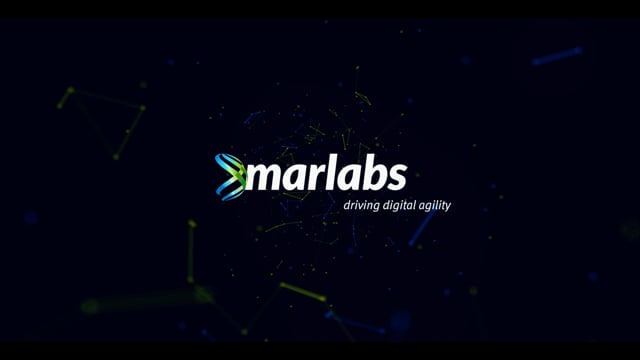But what exactly are enterprise applications? Let’s delve into their definition, explore some key examples, and see how they’re revolutionizing businesses in 2025.
What are Enterprise Applications?
- Scalability: EAs are designed to adapt to the ever-growing needs of an organization. As a company expands, the application can scale its functionality and storage capacity to accommodate the increased workload.
- Security: Since EAs handle sensitive business data, robust security features are crucial. These applications typically come with user access controls, data encryption, and disaster recovery mechanisms to ensure information integrity.
- Integration: EAs can seamlessly integrate with existing software systems, eliminating data silos and fostering a unified information flow throughout the organization.
- Collaboration: Many EAs offer functionalities that promote teamwork and communication. Features like shared workspaces, document management systems, and real-time messaging enable employees to collaborate efficiently, regardless of location.
Examples of Enterprise Applications in Action
The world of enterprise applications is vast, encompassing a wide range of software solutions that cater to specific business needs. Here are some of the most common types of EAs and how they’re used in 2025:
- Customer Relationship Management (CRM) Systems: CRM applications are the cornerstones of modern customer interaction. They help businesses manage customer data, track interactions, personalize marketing campaigns, and ultimately, build stronger customer relationships. In 2025, we're seeing a rise in AI-powered CRM systems that leverage data analytics to predict customer behavior and personalize experiences.
- Enterprise Resource Planning (ERP) Systems: ERPs are the central hubs for managing an organization's core business processes. These comprehensive applications integrate various functionalities like accounting, inventory management, human resources, and project management. Modern ERPs are increasingly cloud-based, offering greater flexibility, accessibility, and real-time data insights.
- Human Capital Management (HCM) Systems: HCM applications streamline all aspects of human resources management, from recruitment and onboarding to payroll processing and performance management. In 2025, HCM systems are incorporating advanced features like skills-based talent management and gamified learning platforms to attract, develop, and retain top talent.
- Supply Chain Management (SCM) Systems: SCM applications provide visibility and control over the entire supply chain, from sourcing raw materials to delivering finished products. As businesses grapple with global supply chain disruptions, EAs with real-time tracking capabilities, risk management tools, and predictive analytics are becoming increasingly crucial.
- Business Intelligence (BI) and Data Analytics Tools: Data is the new normal, and EAs empower businesses to unlock their true potential. BI and data analytics tools help organizations gather, analyze, and visualize complex data sets, enabling data-driven decision-making across all levels. In 2025, these applications will incorporate advanced AI and machine learning capabilities to generate deeper insights and identify new business opportunities.
Use Cases: How Enterprise Applications Drive Business Success
Enterprise applications have a profound impact on how businesses operate in 2025. Here are some key use cases that showcase their transformative power:
- Enhanced Customer Experience: By leveraging CRM systems and customer service applications, businesses can provide personalized customer interactions, resolve issues efficiently, and ultimately build brand loyalty.
- Improved Operational Efficiency: Enterprise applications automate manual tasks, streamline workflows, and eliminate data redundancy, leading to significant productivity gains across all departments.
- Data-Driven Decision Making: BI tools and data analytics platforms empower businesses to leverage data insights for strategic planning, resource allocation, and risk mitigation.
- Boosting Collaboration: Communication and collaboration tools within EAs foster teamwork, improve project management, and enable employees to work seamlessly together, regardless of location.
- Increased Agility: Enterprise applications provide real-time data and insights, allowing businesses to adapt.
The Future of Enterprise Applications
- Cloud-Based Solutions: Cloud-based enterprise applications offer increased scalability, accessibility, and cost-effectiveness for businesses.
- Artificial Intelligence (AI) and Machine Learning (ML): Integration of AI and ML in EAs will lead to intelligent automation, predictive analytics, and more personalized user experiences.
- Internet of Things (IoT) Integration: As more devices become connected, EAs will need to integrate with IoT data to gain real-time insights and automate processes further.
- Focus on User Experience (UX): Enterprise applications will prioritize user-friendly interfaces and intuitive design to facilitate adoption and improve employee productivity.
In conclusion, enterprise applications are the cornerstone of modern business operations. As technology continues to evolve, we can expect even more sophisticated and intelligent enterprise applications to emerge, empowering businesses to operate with greater efficiency, make data-driven decisions, and achieve new heights of success.
Marlabs designs and develops digital solutions that help our clients improve their digital outcomes. We deliver new business value through custom application development, advanced software engineering, digital-first strategy & advisory services, digital labs for rapid solution incubation and prototyping, and agile engineering to build and scale digital solutions. Our offerings help leading companies around the world make operations sleeker, keep customers closer, transform data into decisions, de-risk cyberspace, boost legacy system performance, and seize novel opportunities and new digital revenue streams.
Marlabs is headquartered in New Jersey, with offices in the US, Germany, Canada, Brazil and India. Its 2500+ global workforce includes highly experienced technology, platform, and industry specialists from the world’s leading technical universities.
Marlabs Inc.(Global Headquarters) One Corporate Place South, 3rd Floor, Piscataway NJ – 08854-6116, Tel: +1 (732) 694 1000 Fax: +1 (732) 465 0100, Email: contact@marlabs.com.






